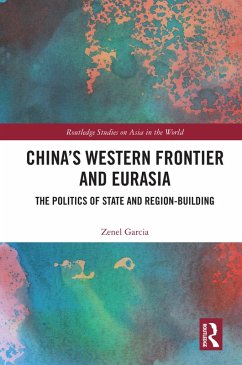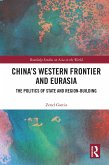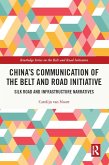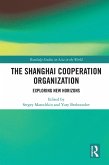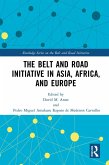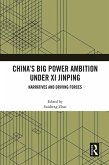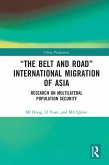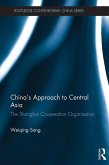Since the founding of the People's Republic, Chinese Communist Party leaders have sought to increase state capacity and exercise more effective control over their western frontier through a series of state-building initiatives. Although these initiatives have always incorporated an international component, the collapse of the USSR, increasing globalization, and the party's professed concerns about terrorism, separatism, and extremism have led to a region-building project in Eurasia. Garcia traces how domestic elite-led narratives about security and development generate state-building initiatives, and then region-building projects. He also assesses how region-building projects are promoted through narratives of the historicity of China's engagement in Eurasia, the promotion of norms of non-interference, and appeals to mutual development. Finally, he traces the construction of regions through formal and informal institutions as well as integrative infrastructure. By presenting three phases of Chinese domestic state-building and region-building from 1988-present, Garcia shows how region-building projects have enabled China to increase state capacity, control, and development in its western frontier.
Recommended for scholars of China's international relations and development policy.
Dieser Download kann aus rechtlichen Gründen nur mit Rechnungsadresse in A, B, BG, CY, CZ, D, DK, EW, E, FIN, F, GR, HR, H, IRL, I, LT, L, LR, M, NL, PL, P, R, S, SLO, SK ausgeliefert werden.
"Zenel Garcia's thorough analysis of the impact of China and its Belt Road Initiative on the Eurasia region is timely and important to understanding the many political, economic and social issues involved. The author brings deep historical knowledge and a solid theoretical approach to explore what has been an understudied area, including the strong link between the Chinese domestic elite-led narratives about security and development with state-building and region-building initiatives. It is a must read for researchers, students, or anyone interested in both Chinese politics and the challenges facing Eurasia in the 21st century."---Sebastien Peyrouse, Research Professor, Central Asia Program, IERES, Elliott School of International Affairs, George Washington University

